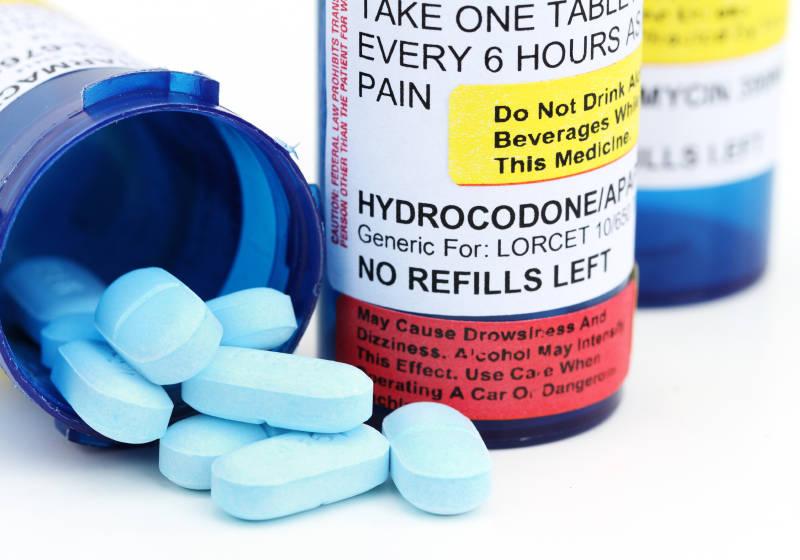By Justin Ebert, PA-C, MCHC Health Centers Medical Director
Opioids are narcotic painkillers that have been used for years to treat pain. When brand name pills like OxyContin, Percocet, and Vicodin came on the market, they were touted as miraculous, non-addictive medications to reduce pain. Health care providers prescribed them to help patients, unintentionally creating an unhealthy culture of dependence in our country. When patients began dying from accidental opioid overdoses in record numbers and new research indicated that opioids actually exacerbate pain over the long term, the national medical dialogue changed dramatically.
By the time it was clear that opioids were dangerous in large doses over long periods, the train had already left the station, so to speak. Right now, the medical community is trying to figure out how to slow the train and help people disembark. At the national level, doctors are working with policy makers to set dose limits, define clinical guidelines and create best practices. At the local level, a coalition called Safe Rx Mendocino is working with Assemblyman Jim Wood, who introduced legislation to regulate opioid prescription practices in California.
Mendocino County, like many around the country, has high opioid prescription rates. While the numbers are coming down slowly, HealthyMendocino.com has pulled data from the California Department of Justice’s Controlled Substance Utilization Review to show that as of January, there are 718 opioid prescriptions per 10,000 population in our area. Click HERE to view the data. Also, about 5 percent of people in Mendocino County have a prescription for opioids (and this number does not address those who use opioid pain killers without prescriptions). Click HERE to view the data.
The SafeRx Mendocino coalition is made up of doctors and other health care professionals from local health centers and hospitals, as well as representatives from Partnership HealthPlan of California and other service providers in our community. Safe Rx Mendocino has two primary goals: 1) to support safe prescription practices in Mendocino County and 2) to expand access to treatment programs for those addicted to prescription drugs. By working together, these organizations reinforce a culture shift away from opioids and toward more effective pain treatments.
New research suggests that alternatives like acupuncture, yoga, therapy and mindfulness practices are far more effective at treating chronic pain than hydrocodone, oxycodone, or morphine. Some new pharmaceutical solutions may also be effective.
One way MCHC Health Centers is addressing the issue is by offering Medication-Assistance Treatment (MAT) to people who want to reduce their dependence on opioids. Our screening and treatment protocols help identify the scope and nature of the problem, and our multidisciplinary and multi-agency approach allows us to use a team approach. Most people don’t realize that 15 percent of the general population has a substance use disorder; this means people from all walks of life struggle with this problem.
As a health care provider, I try to create a safe place where my patients can share what’s going on with them so I can help them develop healthy ways to cope and feel better. When someone comes in and tells me she’s been working in the sex trade to support her gambling habit, my response isn’t to judge, but rather to help identify the most immediate needs and address those first. Then we work on the underlying problems, one step at a time.
Many people with substance use disorders also suffer from mental illness, whether they’re dealing with post-traumatic stress, bi-polar disorder, depression or other challenges. To ease the pain caused by physical or mental illness, people sometimes “self-medicate” with drugs or alcohol. By talking with a medical provider they can often learn better ways to cope and become healthier.
Unfortunately, talking to a medical provider about physical, mental or emotional problems is difficult and not everyone is up to the challenge. People feel ashamed of their behavior and don’t want to admit it, so they don’t seek the help they need. It takes real courage to call and make an appointment. If someone you know wants help, encourage them to call their health provider. They can say they want to make an appointment without having to share the details of why—they can just say they have an issue they are only willing to discuss with their doctor.
At federally qualified health centers like MCHC Health Centers, medical providers work with therapists and others to arrange inpatient or outpatient detox and/or recovery services. If you or someone you know is struggling, please reach out and talk to someone. There is hope. We can help.
###
Justin Ebert, PA-C, is the Medical Director of MCHC Health Centers, a local, non-profit, federally qualified health center offering medical, dental and behavioral health care to people in Lake and Mendocino Counties.

